United Arab Emirates -

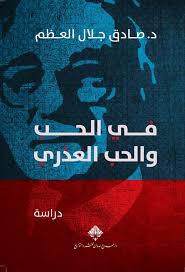
“Before this book, virginal lovers were in our imagination as pure as angels, infallible as saints. Sadiq Jalal Al-Azm comes in this book to tear the mask off the faces of virginal lovers, and to reveal, with logic and deep philosophical thought, that they were, in reality, narcissists and lustful... Nizar Qabbani

With every meter that Rudy passed, his resistance to the influence of the fortune teller’s words became more intense, but at the same time, the fortune teller’s words became more deeply rooted in his soul and mind. Although he did not admit it, the fortune teller's words had completely controlled him. “Indeed, what knowledge do we, the inhabitants of this vile grain of dust called the Earth, claim to say, ‘This is possible and this is not possible?’ If we were merely irrational beings, we would say that we were created as a result of certain interactions between different chemical elements, such as mushrooms, algae, and others. But where does the soul come from and where does it go?” Do you go? And the mind and feelings? It is impossible for a bone or muscle in my body to feel love or hatred or to think and make a decision. All of this is carried by an energy that resides in my body, an energy that is stronger and bigger than me. It does not even reveal to me who it is or what it is made of I am just a dead battery for this energy, what a worthless piece of junk I am, but why should I accept that the fortune teller’s words are true? He, too, is just a piece of junk like me! These thoughts were fighting inside Rudy, and he did not know which idea was victorious over the other
By Thomas Bernhard / Translated by: Samir Grace
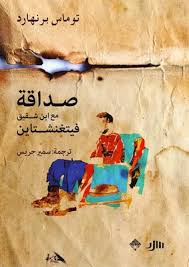
In “Friendship with Wittgenstein’s Nephew,” which is considered the sweetest and most humanly warm of all that Bernhard wrote, the writer talks about his relationship with Powell, the nephew of the famous philosopher Ludwig Wittgenstein, and the bonds of friendship that had united the two when the writer was being treated in a sanatorium for lung diseases. , while Powell was an inmate just steps away from him in a mental hospital. In an endless narrative breath, the Austrian writer describes the last years of his friend's life, which also reflects part of Thomas Bernhard's autobiography, and his reflections on life and death, literature and art, reason and madness.
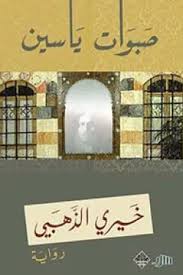
In this novel, “Sabwat Yassin,” we will see the fictional character of the intellectual divided into two characters, the character that the state created, fabricated, and presented as its true self. The original character who escaped from this dark fate went to the home of the religious people from whom he had tried to escape, and then to the community of the Non-Qabalan, a tribe seeking peace who had no dream except to escape from the Qabalan, the sons of Cain, the eternal killer. Yassin escapes and flees, but the state is bigger, and we will read in the novel: “He looked again in the mirror... The face is a real Yassin, there is no doubt, no doubt, no worry about it. But what about this large number of Yassins in the mirrors, Yasin the face, Yasin the back, Yasin the right? Yassin on the left, Yassin al-Qadhali in front, and Yassin al-Yami on the left.” Sabwat Yassin is an image of an intellectual torn between the dream of a universal culture and an oppressed society
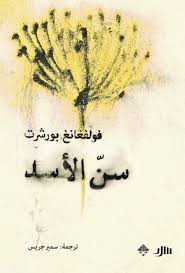
We are a generation without farewell, says the German writer Wolfgang Borchert, summarizing the tragedy of his generation that was led into World War II without anyone saying goodbye to it. Perhaps Borchert is the voice most capable of expressing this generation, and that war that left massive material and spiritual devastation in Germany. It also left literary ruin. Borchert left behind a collection of short stories that his fellow Nobel Prize winner for Literature, Heinrich Böll, describes as “complete masterpieces,” while Egyptian writer Ibrahim Aslan sees in his stories “a sublime expression of the ferocity of all wars without a single direct word.” In this book, we present to the reader a selection of these stories, and what attracted us to them is the human approach to major topics, such as war and death, love and the feeling of loss, and the artistic expression of them.
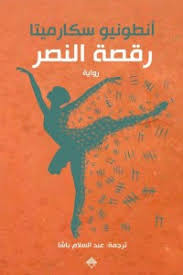
Angel Santiago, the ambitious young dreamer, and Bergara Gray, the famous and experienced thief, benefit from a general presidential pardon and are released from prison on the same day. Santiago seeks revenge for his past and the harsh prison experience, with a major theft that he hopes will build a new future for him, and he helps him carry it out after Gray hesitates, who only seeks to restore his previous life. Their adventure intersects with Victoria, a school student who dreams of being a ballet dancer despite all the circumstances she suffers from. In his award-winning novel, Planeta, Scarmetta tells a warm, emotional story about three people united by love, friendship, and hope for a better future, in a country still living in the shadows of a defunct dictatorship.
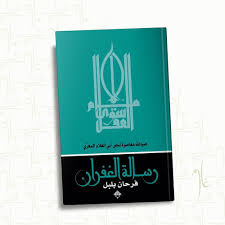
Based on this wish for all Arabs to read what they are able to read, from ancient heritage to modern antiquities, I returned to (The Epistle of Forgiveness) to place it in the hands of senior scholars, intermediate scholars, and those below that. But how do we return to it with passion, eagerness, and the ability to benefit from it after readers have moved away from it until there is no place left for it except in the farthest corners of libraries because it cannot be read no matter how much we tempt people to read it? Would they not be repulsed by it and flee from it as they would from a heavy burden, even if you gave them a generous reward for reading it? Here I came up with an idea that I hope will resonate well with people and students of culture, which is to reformulate it. It was necessary to include the text (Ibn al-Qarih’s letter) because the letter of forgiveness was a response to it. It is not possible to understand (forgiveness) without considering the message of (Ibn Al-Qarih). I treated it in the same way of paraphrasing so that the two messages fit together.
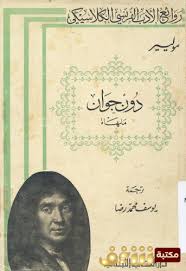
One spring day, Don Juan lands in the garden of a cook who runs a restaurant near the ruins of a French monastery. A friendship is established between the two, and the adventurous traveler tells his friend on dark evenings his stories with women, each of whom is of indescribable beauty. There are literary characters who are born and do not die. Over the years, these characters witness multiple births, each time taking on a different form and a new dimension. Among these characters is Don Juan, to whom Peter Handke returns in this novel, to raise many questions, and to present his reflections on love, the spirituality of love, and the passage of time, destroying the common image of his hero, presenting a new one. Claiming that all previous Don Juan characters were fake, and that "Don Juan" is the real and honest one.
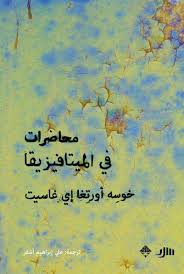
You do not have to be a student of philosophy or metaphysics, nor be interested in them, to read this book. The famous Spanish philosopher simply and deeply delve into a series of ideas closely related to our daily lives, and from there he sets out to explain metaphysics and our need or lack thereof. “For metaphysics itself is nothing but what man does. What you and I do in our lives In conclusion, this life is something prior, and it comes before everything that metaphysics will reveal to us. In these lectures, which he delivered to his students in a regular semester, every reader will find an introduction to understanding the world and understanding himself, and everyone interested in philosophy will find a rich engagement with two main trends in the history of philosophy: realism and idealism.

The title of this book highlights the characteristic of the author’s production. “Studies” means research, contemplation, and theory, while the word “love” means a permanent event in human life, and a feeling that rational philosophy sees as a confused and ambiguous mixture about which it is not possible to conduct intellectual research. But the writer here fulfills the imperative duty he formulated: “Theory must open its clear eyes to subjective life from time to time. The viewer guesses and looks, but what he wants to see is life as it flows before him.” In this study, the writer isolates the essence of love and purifies it, removing from it all the additions that obscure its realistic nature and complicate its process. It is love explained based on psychological and phenomenological research at the same time, and even on social research, since choice in love is considered one of the most effective factors in history.
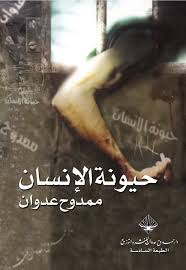
I mean: If that were the case, how much of our dignity, human solidarity, and sense of humanity have we lost until we became accustomed to the humiliation surrounding us, for ourselves and for others?! We have even come to accept this violence and inhumane treatment with which we or others are treated as we see it in life or when we read about it or see it on television. (We will ignore that we sometimes treat others in this way: our children, our subordinates, or those who fall into our hands among our enemies, for example, or the prisoners in our hands, assuming that some of those who carry out these tasks can read what I write). Our habituation to this humiliation is reflected in the fact that we have come to accept that torturing a prisoner is a given. We no longer wonder about the effect of that torture on the prisoner-victim, even after his release from prison, just as we no longer wonder about the effect of torture on its perpetrator. Can he easily return to his normal daily life after leaving the torture room, as if he left the toilet to resume his life? This is the first time I have gathered my thoughts on this topic after many attempts and articles scattered in more than one place.
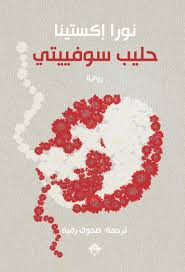
An ambitious mother passionate about medicine suffers and collapses from the transformations imposed by the totalitarian government’s control in all aspects of her social, political, and personal life, depriving her of her passion, identity, and even her desire for motherhood. A dreamy daughter attached to life lives under the care of her grandmother, because her mother often stays away from her. She lives in conflict in a society governed by fear of any difference, in which every desire for uniqueness becomes a crime that must be eliminated. Through the turbulent and volatile relationship between mother and daughter and the story of three generations of Latvian women during the Soviet control of their country, Nora Kstina tells a transparent story about motherhood, love, the desire to live, and hope.
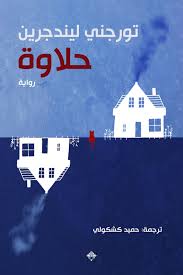
In late October, a writer specializing in the lives of saints gives a lecture in a remote northern Swedish village. After the lecture ends, an old man approaches her to tell her that she will stay with him for the night. Her stay with him is prolonged due to a snow storm that cuts off the road, during which she learns more about the life of her host Hadar, who suffers from cancer, and the strange competition that links him with his brother and neighbor Ulf, who suffers from heart disease. About two brothers who share a lot in common and are linked by a tangled relationship of jealousy, rivalry, guilt, and a strange guest who becomes the engine of this relationship, Torgny Lindgren tells with dark irony in his Auguste Prize-winning novel, Sweetness, a different story about brotherhood.
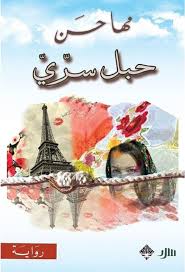
"Sophie Perrin" is a French woman who is fond of speed and hates stability. Her sadness is sudden but authentic, her desires are sudden but stem from existential anxiety, and her questions are many but they hide deep wounds. And Hanifa Kamal, the stubborn Kurdish girl, lived a miserable childhood in Aleppo, which ended in painful torture when her father was forced to choose between two wives, and the decision was to divorce her mother and move them away to a distant village. There is an “umbilical cord” connecting the two, which will only be revealed with “Paola,” who decides to travel from Paris to Aleppo. In her novel, Maha Hassan takes us to the world of the Kurds in Syria, with all its rituals, customs and traditions, highlighting their suffering in a country in which they live, but which is cruel to them. It moves between two cultures: the West and the East, and in doing so it raises the question of identity, its true component, and the question of belonging and its meaning.

In a time when speech has no value, Younes decided to remain silent. What is the benefit of what he says when he is weak, strange, and free from the constraints of twenty-six years that he spent in a world of fear, loneliness, and near death?!! Wherever he went and wherever he moved, he was pursued by curses and oppression. Even his attempts to search for a part of his precious past with his wife and son were useless...! In his relationship with “Abu Al-Rish,” he felt some reassurance from all the alienation that nestled in his heart, but that was not enough for him to find stability and end his torment and loneliness!! The new circumstances of the country, and the changes in the government, increase his flight and confusion, despite his attachment to all the good people who surrounded him during his ordeal. “Younes” who longed for everything... nothing saved him!!

Enter your address and we will specify the offer for your area.